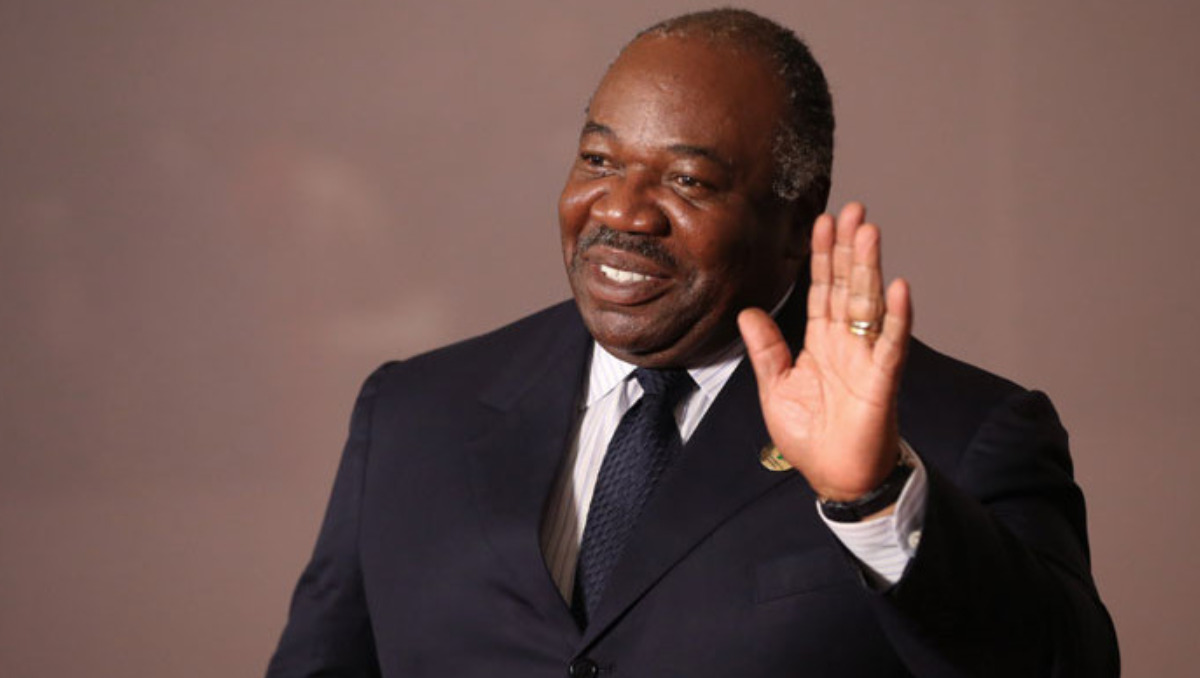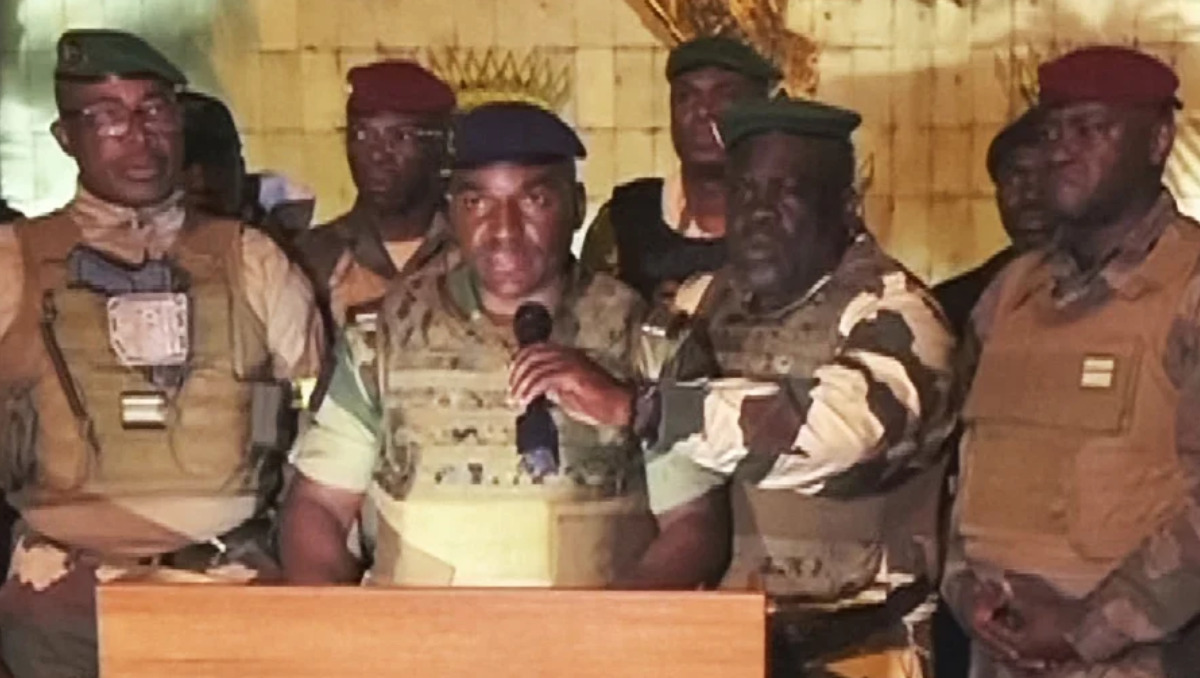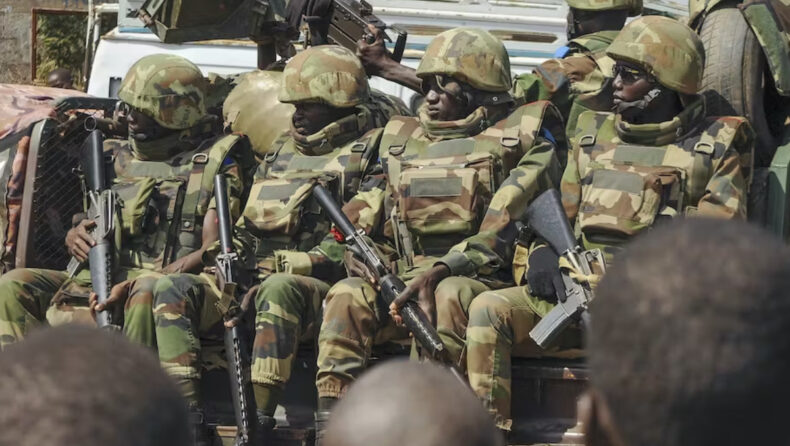A sudden upheaval unfolded in Gabon as a group of Gabonese military officers, including members of the Republican Guard and regular army, appeared on national television to declare the cancellation of the recent election results and the dissolution of key institutions. The announcement was accompanied by the sound of gunfire echoing through the capital city, Libreville. The soldiers proclaimed that they were “putting an end to the current regime” and declared the nullification of the election results that had previously confirmed President Ali Bongo Ondimba’s victory.
Table of Contents
Election Results Overturned
During the televised announcement, an officer representing the military stated that “all the institutions of the republic” had been dissolved. This dramatic move includes the dissolution of the government, the Senate, the National Assembly, and the Constitutional Court. The soldiers stated that they were acting on behalf of the “Committee for the Transition and Restoration of Institutions.”

The cancellation of the election results was a significant part of their announcement, as they invalidated the general elections that took place on August 26, 2024. The election results indicated that President Bongo had secured 64.27 percent of the vote, granting him another term in office. His main challenger, Albert Ondo Ossa, garnered 30.77 percent of the vote. However, Ondo Ossa had alleged widespread fraud orchestrated by the Bongo camp and claimed victory prior to the announcement of the official results.
Calls for Peace Amidst Chaos
The soldiers justified their takeover by claiming that the recent elections did not meet the standards of transparency, credibility, and inclusivity that the Gabonese people had hoped for. They stated that their objective was to “defend peace by putting an end to the current regime.” While the soldiers provided no detailed evidence for their claims, the move is seen as a response to the longstanding concerns regarding election integrity and the consolidation of power.
History of Unrest
This is not the first time Gabon has experienced such dramatic political events. In January 2019, soldiers in Gabon had previously appeared on state television to announce the launch of a coup, asserting their intentions to “restore democracy” in the country. At that time, military officers had seized control of the government, leading to international concern and condemnation. The current takeover echoes these past events and adds to the ongoing political instability that the nation has been grappling with.

Regional Implications
The situation in Gabon is not isolated, as other countries in Western and Central Africa have also experienced military takeovers in recent years, and this coup will mark the eighth such takeover. From Niger to Mali, Guinea to Burkina Faso, and Chad, several nations in the region have witnessed military coups that have disrupted governance and led to periods of uncertainty with high-ranking military officers seizing power. The recurring nature of these events highlights the challenges many African nations face in establishing stable and democratic government systems.
Future Uncertainty
With the institutions dissolved and the election results canceled, Gabon now enters a period of great uncertainty. The international community will be closely monitoring the situation as events unfold, assessing the potential impact on regional stability and diplomatic relations. The soldiers’ actions have thrown the nation into a state of flux, and the fate of Gabon’s governance and leadership remains uncertain. As the situation continues to develop, the people of Gabon and the world await further clarity on the path forward for this oil-rich African nation.
Read More: Russian Airport Under Drone Attack: Massive Fire Rage Damage












